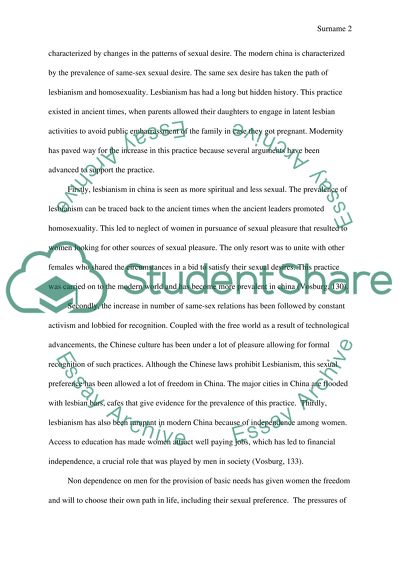Cite this document
(“Sex in Contemporary China Essay Example | Topics and Well Written Essays - 1500 words”, n.d.)
Retrieved from https://studentshare.org/gender-sexual-studies/1446295-sex-and-desire-in-contemporary-china
Retrieved from https://studentshare.org/gender-sexual-studies/1446295-sex-and-desire-in-contemporary-china
(Sex in Contemporary China Essay Example | Topics and Well Written Essays - 1500 Words)
https://studentshare.org/gender-sexual-studies/1446295-sex-and-desire-in-contemporary-china.
https://studentshare.org/gender-sexual-studies/1446295-sex-and-desire-in-contemporary-china.
“Sex in Contemporary China Essay Example | Topics and Well Written Essays - 1500 Words”, n.d. https://studentshare.org/gender-sexual-studies/1446295-sex-and-desire-in-contemporary-china.


